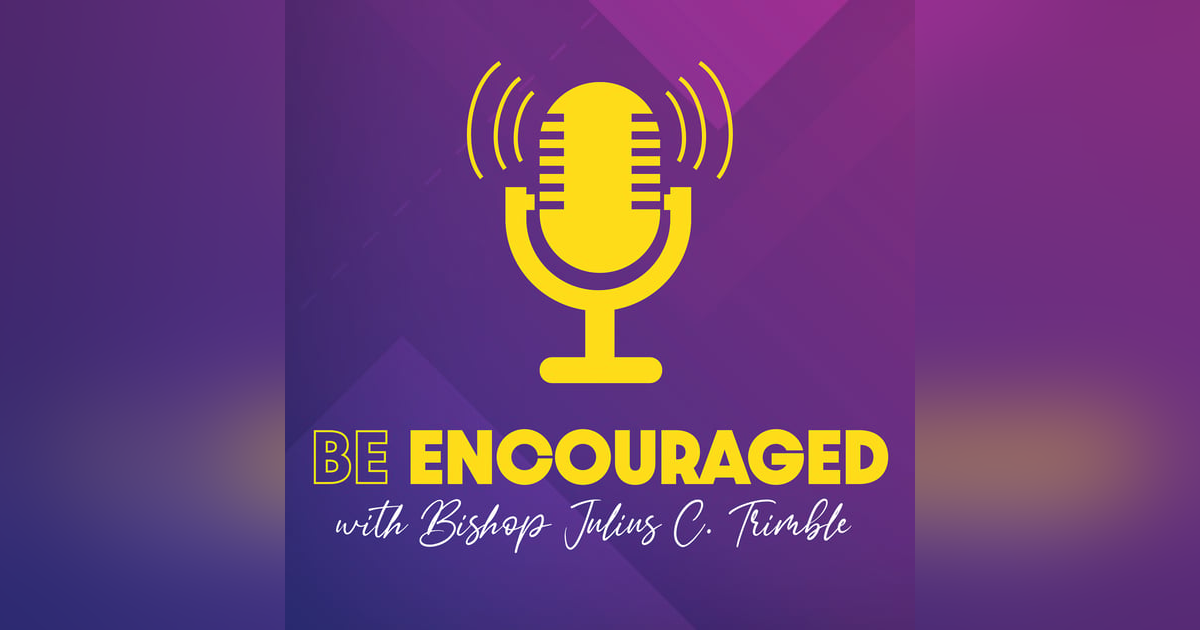The Influence of Giants on Faith, Activism, and Sports

Bishop Julius C. Trimble is the Resident Bishop of the Indiana Area of the United Methodist Church.
Bishop Trimble has the personal mission to encourage all people with the love of Jesus Christ to rise to their highest potential. It is his commitment to his personal mission that led Bishop Trimble to create the “To Be Encouraged” Podcast along with co-host Rev.Dr. Brad MIller.
Bishop Trimble says, “I am compelled by Jesus to share with you an encouraging word or two about Jesus, theology, the Bible, the pandemic, the environment, racism, voting rights, human sexuality, and the state of the United Methodist Church.”
To Be Encouraged with Bishop Julius C. Trimble is to be published weekly and is available at www.tobeencouraged.com and all the podcast directories.
https://www.inumc.org/bishop/office-of-the-bishop/
**Episode 114: Lessons from Giants - Show Notes**
Welcome to another soul-lifting episode of the To Be Encouraged podcast! In Episode 114, Rev. Dr. Brad Miller sits down with Bishop Julius C. Trimble to delve into the lessons we can learn from three monumental figures who recently passed away. This riveting conversation not only memorializes these giants but also illuminates the broader implications of their lives and legacies. Here are three key takeaways from this impactful episode:
### **1. The Power of Witness and Advocacy: The Life of Rev. James Lawson**
Rev. James Lawson was a formidable figure in the civil rights and human rights movement. Though Bishop Trimble did not know him personally, Lawson's influence resonated deeply within his own ministry. A United Methodist pastor and a close associate of Dr. Martin Luther King Jr., Lawson was instrumental in teaching the principles of nonviolent resistance. His lifelong commitment to advocacy, social justice, and human rights serves as an inspiration for young pastors and anyone involved in social activism. Lawson demonstrated that the church's role extends beyond worship to radical prophetic witness and effective advocacy.
### **2. Theological Foundations of Hope: The Impact of Jürgen Moltmann**
Jürgen Moltmann's theological contributions, particularly his "Theology of Hope," have left an indelible mark on both academia and personal faith journeys. Jürgen Moltmann believed that theology should not be confined to the ivory tower but should translate into real-world action and hope. His writings remind us that what we believe about God should inform how we live, what we are willing to stand for, and even sacrifice for. Jürgen Moltmann emphasized the church's role as a beacon of hope in a world often filled with despair, a message that is critically relevant for young theologians and pastors today.
### **3. Overcoming Adversity to Achieve Greatness: The Legacy of Willie Mays**
Willie Mays, the legendary baseball player, symbolizes resilience and excellence in the face of adversity. Despite experiencing significant racial discrimination, Mays excelled to become one of the greatest athletes in history. His story is a testament to the power of perseverance and serves as an enduring inspiration across various professions, including ministry. Bishop Trimble reminds us that modern-day successes in sports and other fields are built on the foundations laid by trailblazers like Mays, whose struggles and achievements continue to provide motivation and guidance.
### **Conclusion: Continuing the Journey**
In this enriching episode, Bishop Julius C. Trimble underscores the importance of learning from the past to better navigate the future. The stories of Rev. James Lawson, JJürgen Moltmann, and Willie Mays offer invaluable lessons in advocacy, hope, and perseverance. As we stand on the shoulders of these giants, may their legacies inspire us to contribute positively to society and continue to offer an encouraging word to an often discouraged world.
Tune in to Episode 114 of To Be Encouraged to absorb these enlightening lessons and more. Don't forget to check out the full article referenced in the podcast, available on our show notes at tobeencouraged.com. Thank you for joining us on this inspiring journey!


